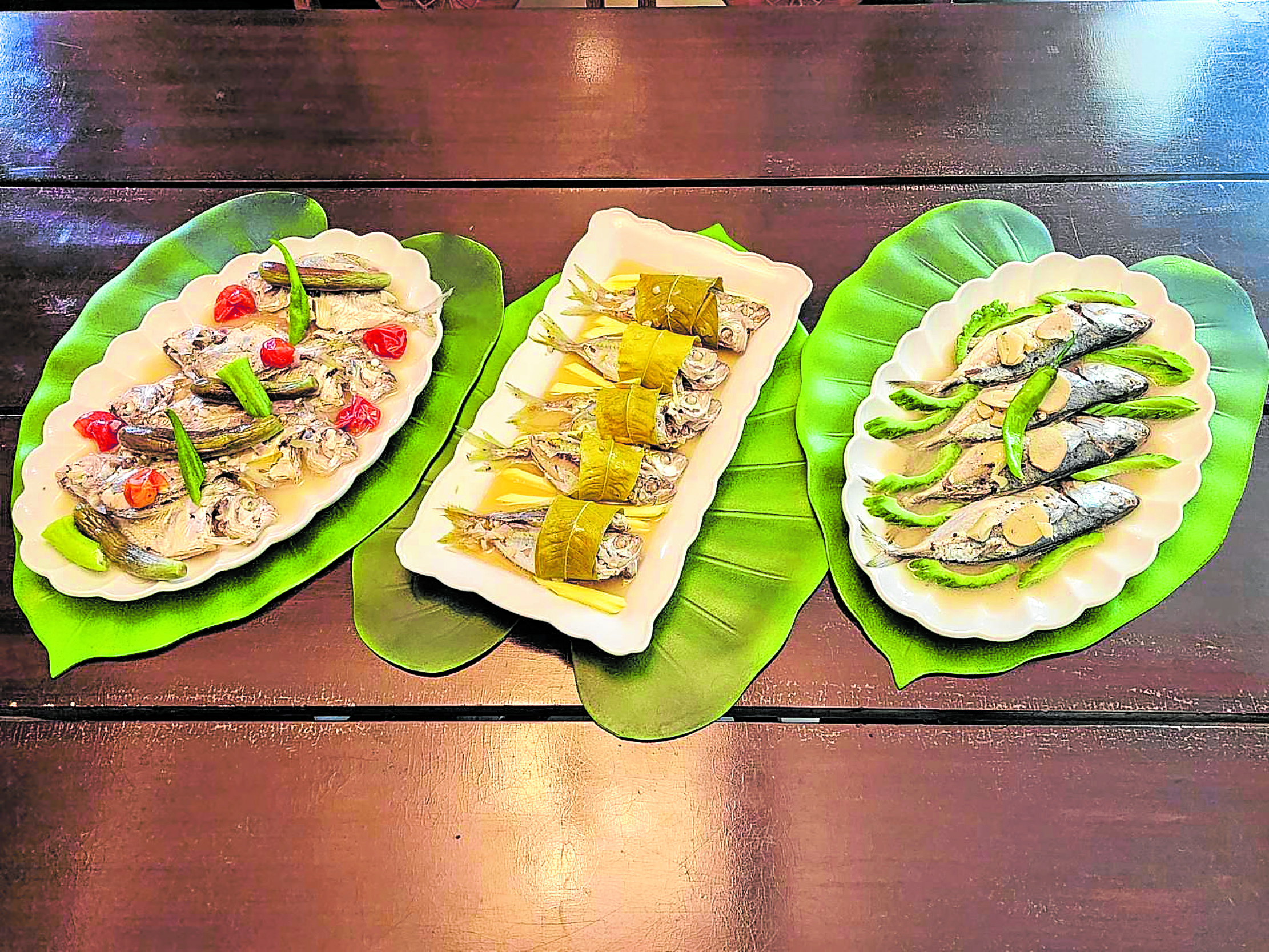Here are some practical and easy-to-do ABC’s to help you get started.
A—Apple. The controversial fruit from the garden of Eden is more than just a health food. It also offers a great way to diet—high in fiber and rich in vitamins A, B and C, and the minerals magnesium, phosphorus, potassium, iron, calcium and zinc. The apple diet is a kind of cleansing and fasting regimen. Its pectin content lowers cholesterol and detoxifies the body of pollutants. Fruit acids in apple reduce uric acid levels and produces an anti-inflammatory effect on the joints. It is good for people who are gout-stricken.
If you eat six raw apples a day for one to three days, you will likely lose weight. Combine this with healthy greens with only olive oil-lemon dressing, and you will not only become lighter, you’d also end up healthier. But this diet is not recommended for long-term applications, as the ideal diet must be a balanced one. Consult a nutritionist and your physician first.
B—B vitamins. They work best in synergy than when taken separately. Thus, B1, B2, B6 and B12 should be equally balanced. Vitamin B is called the stress vitamin or the morale vitamin because of its healing effects on the nervous system and mental attitude. If you are feeling low, sick or will undergo surgery, taking a B vitamin will speed up your recovery.
Vitamin B also improves digestion of carbohydrates, keeps muscles and heart functioning normally, promotes growth. There is no known toxicity for this water-soluble vitamin because any excess is excreted through the urine. However, in rare occasions, excessive use (doses exceeding five to 10 g daily) may result to tremors, herpes, rapid heartbeat, allergies, nervousness. Daily recommended dose is 100-500 mg.
Natural sources: egg yolks, fish, vegetables, milk, lean pork, bran, rice husks, brewer’s yeast, whole wheat, oatmeal, unrefined cereal grains, organic meats (especially liver), cheese, avocados, dates, figs, prunes, walnuts, peanuts.
C—Citrus fruits. They contain loads of vitamin C and calcium. As the No. 1 skin vitamin, it’s also one of the most potent of antioxidants. Humans, apes and guinea pigs do not produce Vitamin C, thus this must be taken from dietary sources. Without vitamin C, the skin will suffer in quality and luster. When you smoke, drink and are stressed, your body’s absorption of vitamin C is more rapid. Therefore, the more hectic your day will be, the higher the dosage of C you will need.
While citrus fruits may be acidic for some people, supplementation should be considered. If you have bleeding gums, wounds and burns, increase your vitamin C dosage. This vitamin also accelerates healing after surgery. If you want a quicker intake of vitamin C, ask your doctor for vitamin C intravenous injections.
Natural sources: citrus fruits, berries (maqui, acai, blueberry) green and leafy veggies, tomatoes, peppers, cauliflower, potatoes. Excessive intake of C (over 10 g) causes oxalic acid and uric acid stone formation. However, taking magnesium, vitamin B6 and eight glasses of water daily can neutralize this. Other side effects include diarrhea, excess urination and skin rashes.
Note: Vitamin C is sensitive to light, heat and cooking. As an anti-cold remedy, 1,000 mg of vitamin C twice daily is needed. This decreases the histamine in the blood by 40 percent.
D—Defend yourself against depression. The best way is to live a balanced life. Overdoing anything, especially work, can lead to an increase in your stress levels. Once you are continuously stressed on a daily basis, the toxic levels of the body build up. The biology is simple: Stress equals increase in stress hormones equals depressed immune system.
To do:
Divide your work and recreation time equally. Make time for relaxation exercises to relieve your stress. Empty your mind of daily concerns by practicing meditation and devoting yourself to some prayer time.
Embark on an exercise regimen. Start nice and easy.
Have your hormone tests to determine your levels. Consult an endocrinologist.
Check your vitamin levels. Chances are, if you are suffering from mood swings and “low” periods, your niacin or folic acid and B complex levels are depleted. Or maybe you simply lack sunshine or Vitamin D.
There is scientific evidence relating mental illness to diet. This is because biochemical imbalances are connected to mental disturbances.
Watch your alcoholic content. Because alcohol is a nerve depressant, don’t resort to drinking when you feel the blues. It will make you feel bluer! Oral contraceptives deplete the body of B6, B12, folic acid and vitamin C. So if you’re on the pill and depressed, this is a reasonable consequence. Add more vitamins to your diet plus vitamin-rich foods.
Today’s affirmation: “I am well beyond measure!”
Love and Light!
Reference: “Vitamin Bible for the 21st century,” by Earl Mendell











































